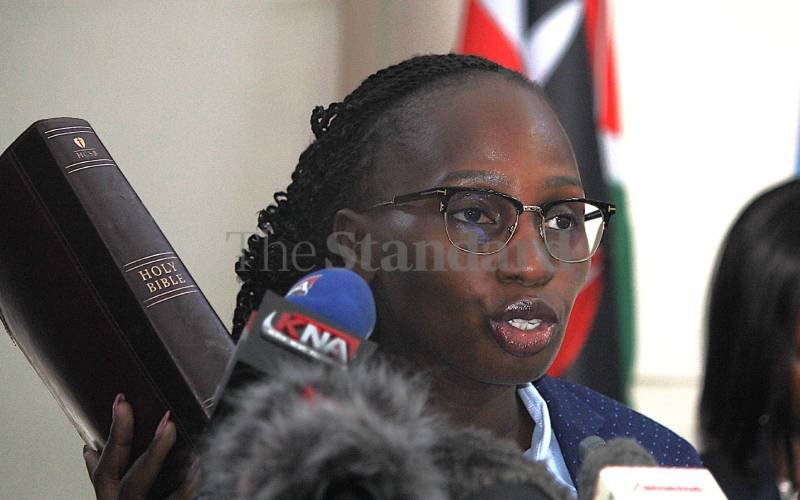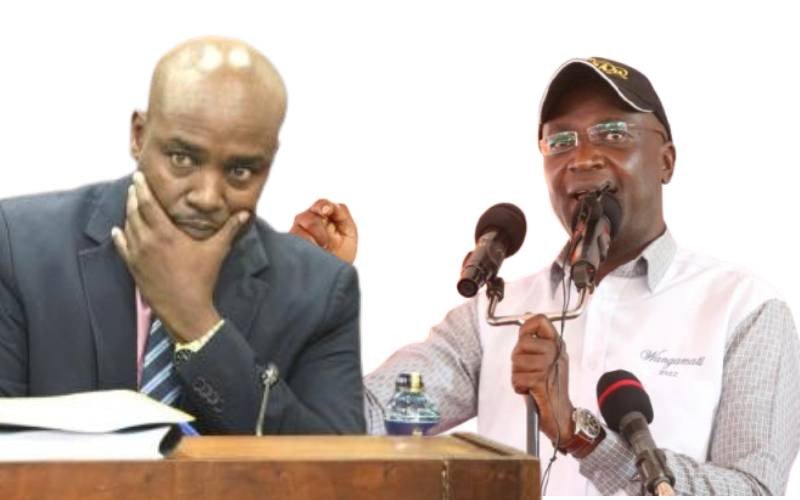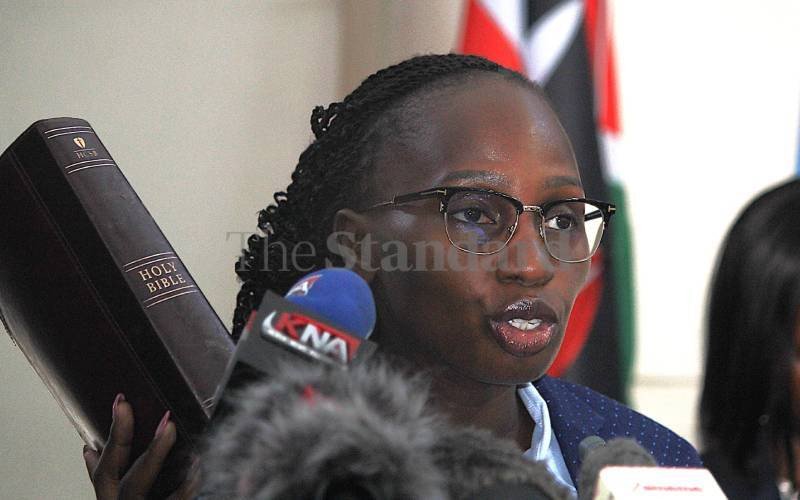Kenya's Legal Battle Heats Up: LSK Leadership Under Siege Amidst Appointment Controversy

Law Society of Kenya (LSK) President Faith Odhiambo took the Oath of Office as the Vice Chairperson of the Panel of Experts on Compensation of Victims of Protests and Riots on September 4, 2025, an appointment that has ignited widespread public debate and scrutiny. Ms. Odhiambo, who upon taking office as LSK President promised to uphold the rule of law, had indeed demonstrated this commitment during the Gen-Z protests and earlier Finance Bill protests, where she actively coordinated legal aid, sought out detained persons, and supported families of victims.
However, her acceptance of this appointment has drawn significant criticism. Many believe that by joining a presidential task force on victim compensation, she risks compromising the LSK's historical independence and lending legitimacy to a process that some argue may usurp the constitutional role of the Judiciary. Critics contend that accountability for violence, injuries, and property destruction during protests should primarily fall within the established justice system, involving police investigations, prosecutions, and judicial compensation, rather than a presidential panel.
The debate highlights a perceived conflict of interest, with detractors arguing that as the head of the legal fraternity, her decision could mute both her voice and that of the institution she leads, especially if LSK is seen as aligning with government processes. The LSK, under section 4 of the Law Society of Kenya Act, is mandated as a statutory guardian of the rule of law, tasked with advising the government, protecting public interest, and upholding the Constitution. Historically, LSK has served as a critical bulwark against authoritarian excess, speaking truth to power at significant cost.
Conversely, defenders of Ms. Odhiambo’s decision view her involvement as a continuation of her unwavering commitment to victims. They argue that leadership requires judgment and the courage to make difficult choices, and that her presence on the task force is a means to ensure victims receive actual redress, not just empty promises. From this perspective, engaging with such a body allows for professional voices to safeguard accountability from within contested spaces, similar to LSK's representation in the Judiciary Service Commission.
The core of the controversy, however, extends beyond personal intentions, focusing on constitutionalism and the institutional integrity of the LSK. The central question is whether it is proper for a sitting LSK president to co-chair a body whose constitutionality is doubtful, particularly in the absence of a formal resolution by the LSK Council. The argument is that the LSK’s authority stems from its statutory mandate and fidelity to the Constitution, not from the personal discretion or good intentions of its leaders.
In a period where executive overreach is normalized and institutions face pressure, the independence of professional bodies like the LSK is deemed a necessity. Therefore, the debate underscores that Ms. Odhiambo’s role should be grounded in institutional legitimacy derived from a collective LSK decision. If such a resolution exists, her participation is justified; if not, her involvement risks undermining the Society’s independence and credibility. Ultimately, the constitutional question regarding the LSK's stance on a body that appears to usurp judicial functions is primary, with history poised to judge the LSK by its faithfulness to the Constitution rather than its embrace of presidential invitations.
You may also like...
Messi Mania Unleashed: Two Goals, One Assist as Inter Miami Obliterates Atlanta!
)
Lionel Messi delivered a sensational performance, scoring two goals and assisting one, as Inter Miami defeated Atlanta U...
Super Eagles Flight Terror: Mid-Air Scare Forces Emergency Landing!

Nigeria's Super Eagles faced a mid-air scare when their chartered ValueJet aircraft made an emergency landing in Luanda,...
Mutant Mania Unleashed: 'X-Men '97' Season 2 Gets 'Omega-Level' Updates and Teases Rogue-Magneto Romance!

Marvel TV boss Brad Winderbaum confirms the continuation of the Rogue and Magneto romance in <em>X-Men '97</em> Season 2...
Hollywood Loses a Legend: Diane Keaton Dies at 79, Industry Mourns Her Iconic Legacy

Academy Award-winning actress Diane Keaton has died at 79, sparking a wave of tributes from Hollywood stars and fans ali...
Botswana's Judiciary Under Siege: Non-State Actors Threaten Legal System

The Southern and Eastern Africa Chief Justices' Forum in Gaborone addressed critical issues of judicial independence and...
Shocking Death: Former Lostprophets Singer Ian Watkins Brutally Killed in Prison Attack

Ian Watkins, the disgraced former lead singer of Lostprophets and a convicted pedophile, has died at 48 after being fata...
Budget Bliss: Lidl's New Gadget Slashes Winter Bills by £275!

As colder weather sets in, Lidl is offering an affordable solution to combat household condensation and damp with its Tr...
Unveiled: Jennifer Aniston's Secret 29p Superfood for Staying in Shape!

Jennifer Aniston's diet secret, quinoa, is revealed to be a powerful superfood packed with health benefits. This gluten-...


